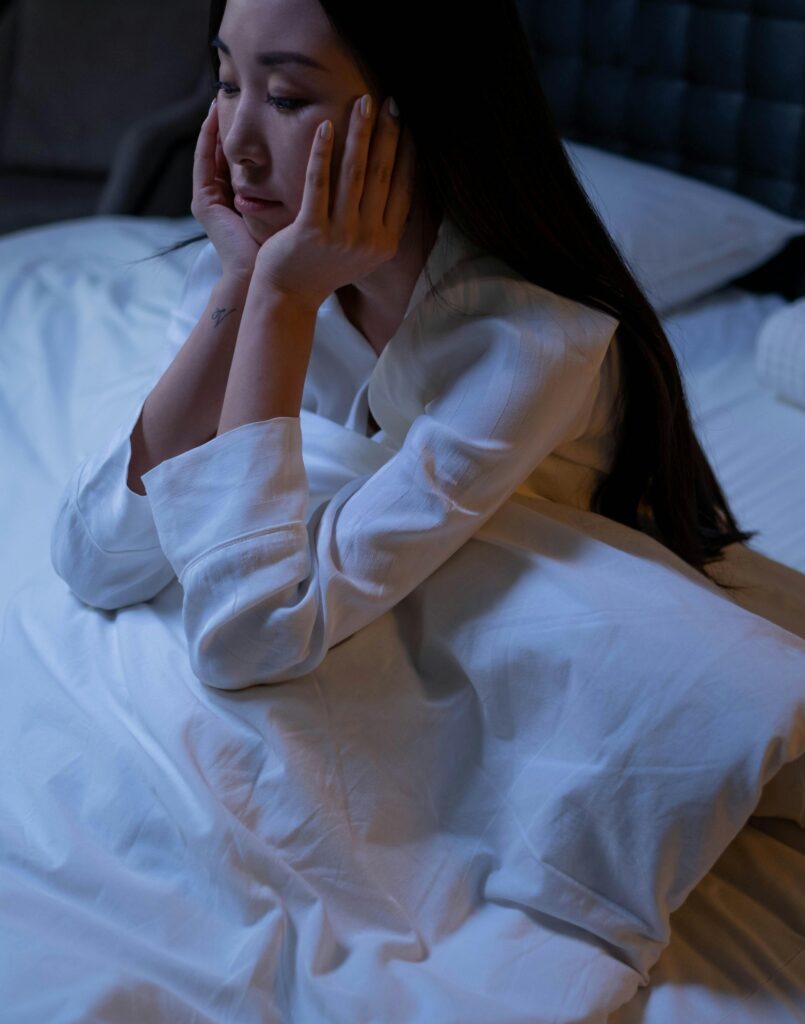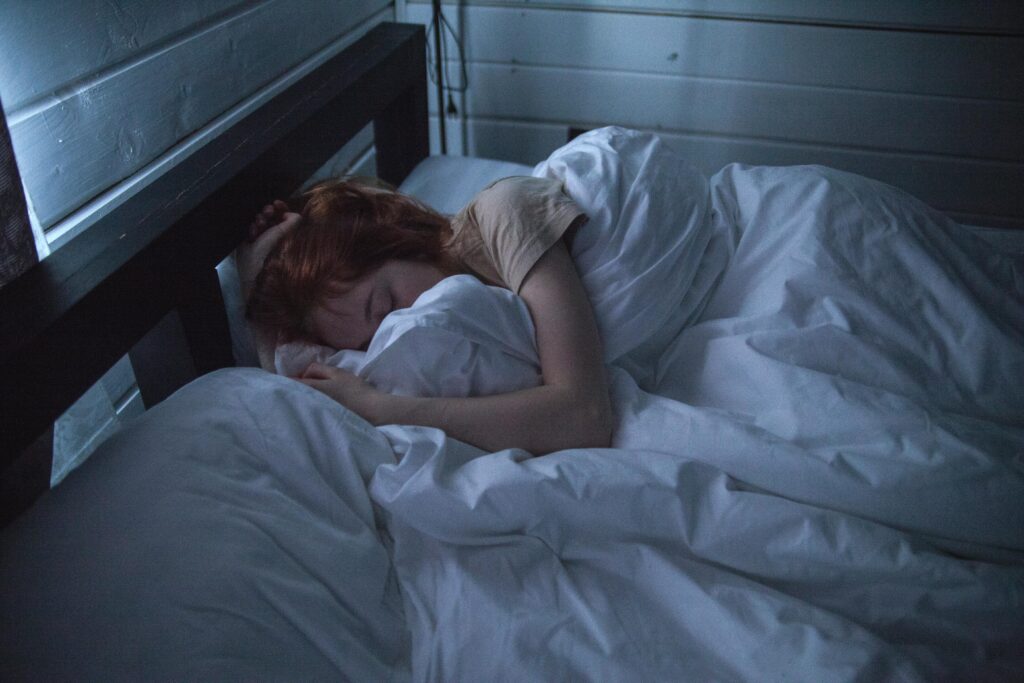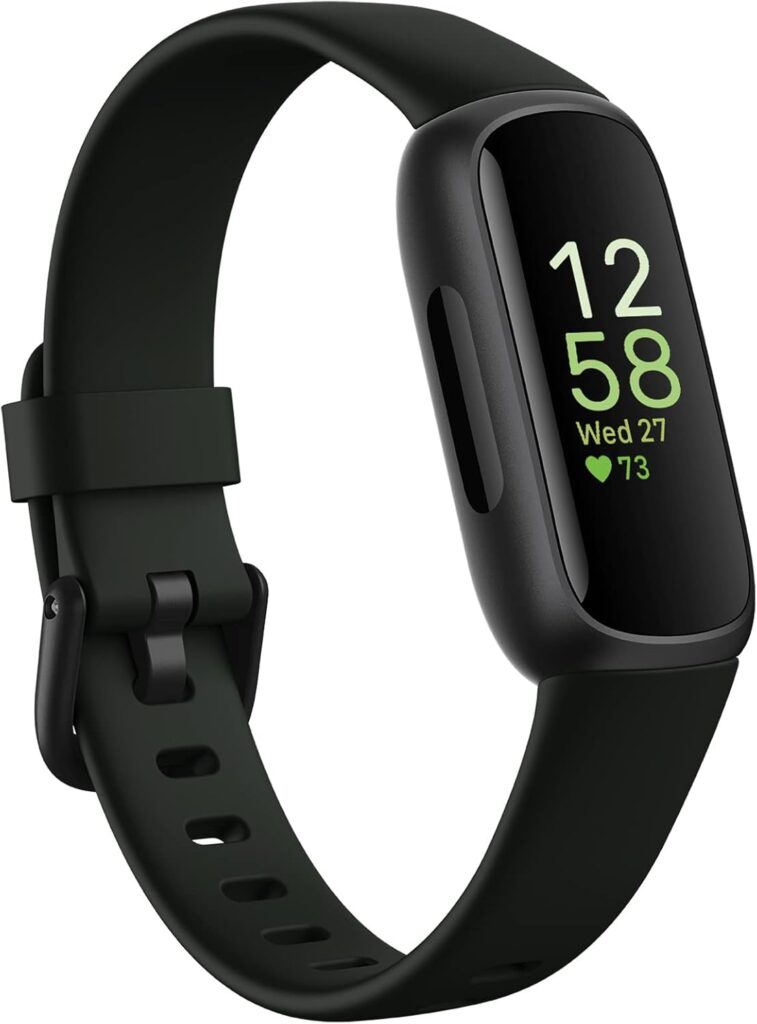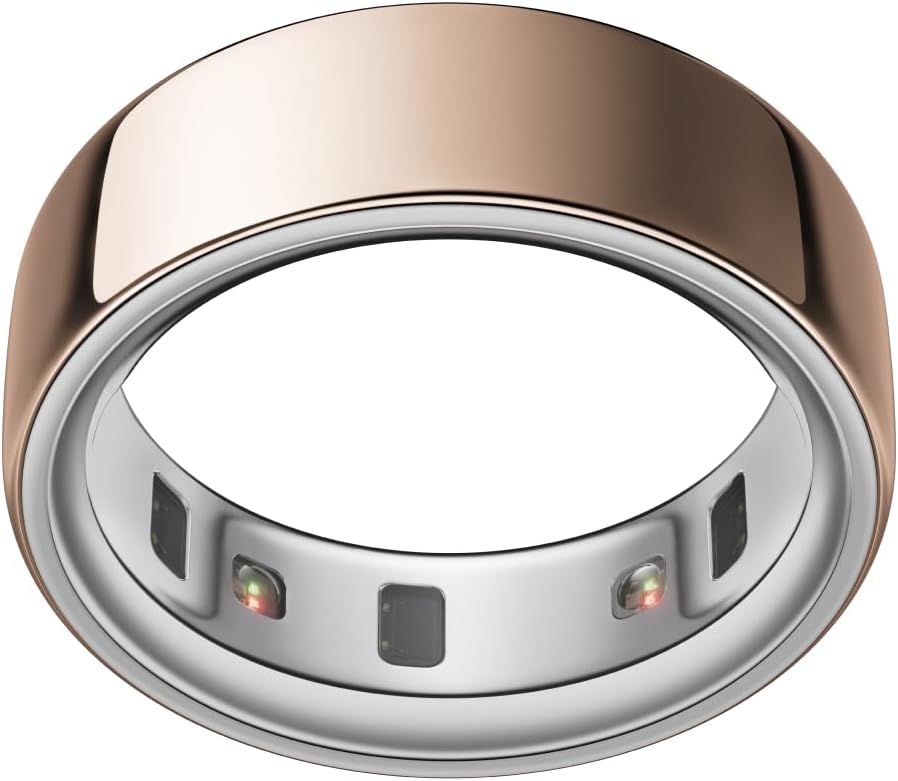In today's fast-moving world, stress has become an unavoidable part of life. Whether it's caused by work deadlines, financial pressure, personal issues, or even the constant buzz of notifications on your phone, stress can take a serious toll on your health—and one of its most damaging effects is poor sleep.
Sleep is essential for physical and mental recovery, yet stress can interfere with both the quantity and quality of your rest. Let's explore how stress causes bad sleep, why it matters, and how smart devices like sleeping monitors and health trackers can help you regain control.

The Science Behind Stress and Sleep
Stress triggers the body's “fight or flight” response, a natural reaction designed to protect you in emergencies. During this response, your brain releases hormones like cortisol and adrenaline, which increase heart rate, blood pressure, and alertness. This is useful in short bursts—but when stress is constant or poorly managed, it disrupts your body’s natural rhythm.
Here’s how stress interferes with sleep:
- Difficulty falling asleep: Racing thoughts and mental tension make it hard to relax.
- Frequent awakenings: Stress keeps your nervous system on high alert, preventing deep, restorative sleep.
- Poor sleep quality: Even if you sleep 7–8 hours, stress can reduce time spent in REM and deep sleep stages.
- Insomnia: Chronic stress is one of the most common causes of long-term sleep disorders.
The Vicious Cycle of Stress and Sleep
What makes stress and sleep so problematic is that poor sleep makes stress worse. Lack of sleep affects mood, reduces your ability to cope with daily challenges, and increases anxiety and irritability.
This creates a vicious cycle:
Stress → Poor sleep → More stress → Worse sleep
Breaking this cycle is key to improving your well-being.

Signs That Stress Is Affecting Your Sleep
If you’re unsure whether stress is behind your sleep issues, watch for these signs:
- You lie in bed thinking about problems or to-do lists.
- You feel tired during the day despite spending enough time in bed.
- You wake up several times at night without a clear reason.
- You feel restless, anxious, or irritable in the morning.
How Technology Can Help: Smartwatches and Sleeping Monitors
Thanks to modern wearable technology, it’s easier than ever to track and manage your sleep—and even identify stress patterns.
Sleep Tracking Devices
Smartwatches and health trackers monitor your sleep stages, duration, heart rate, and even body temperature. Devices like the Apple Watch, Fitbit Sense, or Oura Ring provide valuable insights, including:
- Sleep duration and quality
- Heart rate variability (HRV)—a key marker of stress
- Breathing rate
- Nighttime movement and awakenings
By reviewing this data regularly, you can start to spot connections between your stress levels and sleep patterns.
Stress Monitoring Features
Some wearables go beyond sleep by offering stress tracking. They use HRV, skin temperature, and electrodermal activity to estimate your stress levels throughout the day. With this information, you can:
- Recognize high-stress periods
- Practice calming techniques (many devices offer guided breathing)
- Adjust your lifestyle to reduce stressors before bedtime
Practical Tips to Reduce Stress and Sleep Better
Technology is a great support tool, but you also need to take direct action to reduce stress. Here are proven strategies:
1. Stick to a Sleep Routine
Go to bed and wake up at the same time every day—even on weekends. Consistency helps regulate your body’s internal clock.
2. Limit Screen Time Before Bed
Avoid phones, tablets, and TVs at least an hour before sleep. The blue light they emit disrupts melatonin production, your natural sleep hormone.
3. Try Deep Breathing or Meditation
Apps like Calm, Headspace, or the built-in features of your smartwatch can guide you through short relaxation sessions.
4. Exercise Regularly
Physical activity reduces stress hormones and helps you fall asleep faster. Just avoid intense workouts too close to bedtime.
5. Avoid Caffeine and Heavy Meals at Night
Both can interfere with falling and staying asleep. Opt for herbal tea or light snacks if you need something before bed.
6. Create a Relaxing Sleep Environment
Dim lights, quiet surroundings, and a cool room temperature (around 18°C or 65°F) promote better sleep.

When to Seek Help
If stress-related sleep issues persist for more than a few weeks, it may be time to consult a doctor or sleep specialist. Chronic insomnia or anxiety disorders may require professional treatment, including therapy or medication.

Final Thoughts
Stress is a silent thief of restful sleep—but it doesn’t have to control your nights. By understanding how stress causes bad sleep, and using tools like sleeping monitors, smartwatches, and health trackers, you can take meaningful steps toward better sleep and a healthier life.
Good sleep is not a luxury—it’s a necessity. And with the right support, your body and mind can find the calm they need to truly rest.





